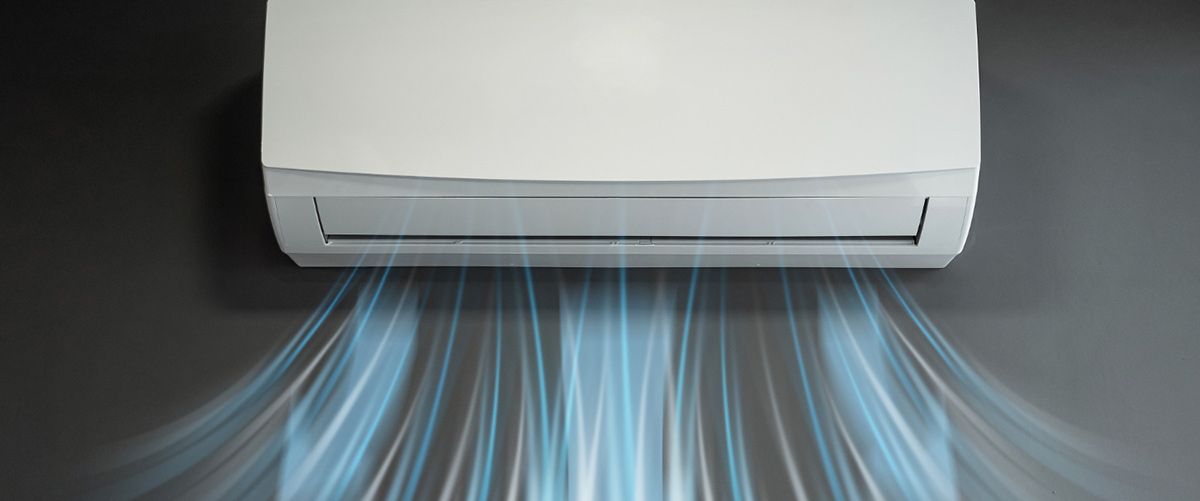- How Does Air Conditioning Work?
- What Is a SEER Rating?
- What Is a Good SEER Rating?
- Energy Leaks
- How Do I Decide?
- Calculating Savings
- Types of Units
- Choosing Your Air Conditioner Efficiency
The days of living without air conditioning in our homes are long gone. In fact, as many as 75% of homes in the United States now have some type of air conditioning to help keep us cool in the summer heat.
So when you’re looking to install or upgrade the AC unit in your home, you may be wondering about air conditioner efficiency and how to keep your energy costs low. After all, who doesn’t want to keep their home cool without paying a huge bill each month?
As you’re researching, you may have come across the idea of a SEER rating. If you’re still not sure what that means, then read on. We have your ultimate guide to understanding this phrase and what it means for your air conditioning needs.
How Does Air Conditioning Work?
Before getting into the conversation about energy efficiency and how it relates to air conditioning, it’s a good idea to start with how air conditioning works to help keep your home cool.
The history of air conditioning dates all the way back to the early 20th century but wasn’t necessarily the most efficient. Today, air conditioners operate much like your refrigerator to create a cooled environment.
An air conditioning unit takes warm air from the environment and forces it through evaporator coils. These coils contain chemical refrigerants that absorb the heat from the air. The heat turns the refrigerant from a liquid to a gas, through which the newly cooled air passes.
The cooled air then travels through your ductwork and into your home. Today, refrigerants are much more environmentally friendly than the chemical in the past.
The gaseous refrigerant then needs to get turned back into a liquid to keep working efficiently. The gas is compressed through condenser coils, which help to turn the gas back into liquid once again.
As you run your air conditioning unit, this process is repeated again and again to help create cooled air that gets pushed through your ducts and into your home.
What Is a SEER Rating?
SEER stands for Seasonal Energy Efficiency Ratio. At its most basic, it measures how much energy it takes to run an air conditioner.
Of course, it tends to become a bit more complicated. The way an AC SEER rating is calculated requires measuring how much cooling the unit puts out over the season. In Denver, that can be between five or six months a year before the cooler weather (and ski season) kicks in.
This amount of cooling is then divided by the amount of energy the air conditioning unit uses, calculated in Watt-Hours.
While this all sounds complicated, the main idea is that the higher your SEER rating, the more efficiently the unit can cool. This requires less energy, meaning a lower electric bill for you each month.
How Much Does It Really Cost To Install A Central Air Conditioner in Denver?

Free Download: Denver Central Heating & Air Conditioning Combinations
What Is a Good SEER Rating?
The air conditioning unit and SEER rating that is best for you will depend on several factors. The U.S. Department of Energy actually determines the minimum SEER rating depending on where you live. For Colorado and much of the Northern United States, the minimum SEER rating is 13.
You can buy air conditioning units up to a rating of 22. However, it’s important to remember that a SEER rating of 22 does not mean it will always operate at that level of efficiency. Other factors will determine how efficiently your unit will operate.
Energy Leaks
Some of the factors that can impact how well your unit runs will include the size of your house, the condition of your ductwork, how well it’s insulated, and if there are any leaks. Your attic and basement may be hiding areas where your cooled air is escaping.
To get the most out of your air conditioning unit, you should take some time to find and seal leaks in your ducts, windows, basement, and attic. That will help you create the most energy-efficient home possible.

Free Guide Buyers Guide: Types of HVAC Systems – Consumer Buying Guide in Denver 2021
How Do I Decide?
A rating of 13 or 14 is the lowest you can buy today, but that doesn’t mean that it’s the best choice. There are many factors that you should consider when choosing from the various air conditioners available.
It’s important to take into account the climate and weather for where you live. This will have a large role to play in how often you will need to run your air conditioning. In hot, dry climates like the Southwest, this can be almost year-round.
But in Denver and the surrounding areas, our climate is much less arid. Our seasons and weather patterns mean that we only need to turn on our a/c units for a few months each year. Once Fall and Winter come around, we no longer need to cool our homes and turn on the heat instead.
Calculating Savings
The more energy-efficient an air conditioning unit is, the more expensive it is to buy upfront. You should always calculate how long it will take to pay off that upfront expense. Many times, the unit itself will have a sticker on it that gives estimated savings per year.
So if an air conditioning unit with a higher SEER rating is going to cost you $2000 more (for example) and save you $350 a year, it could take you around six years to benefit monetarily from that higher AC efficiency.
You may want a higher SEER rating on your unit because you know that lower energy use is better for the planet. Or you’re in your forever home and know that the cost savings are worth it in the long run.
On the other hand, you may only plan on staying in your home for a few years. That means you’re paying upfront for a more efficient air conditioner that won’t end up breaking even until a future owner is in the home.
Types of Units
There are many different types of AC units that you can choose and will help determine how much energy they use. What you decide should be based on factors like the size of your home, how much you’ll have the a/c running, where the unit will be installed, and even your desired SEER rating.
Read Our Guide: Swamp Cooler Vs Air Conditioner Comparison Guide

When Is The Best Time For An Air Conditioning Replacement?
Single-Stage
One of the most basic central air conditioning units is a single-stage. These turn on when the thermostat climbs above the set temperature and runs full speed for as long as it will take to cool your home.
While single-stage units are effective at cooling your home, you may notice some inconsistencies. Some rooms may not cool as quickly or as well. They’ll also turn on and off frequently in hot weather to keep your home at the desired temperature.
Single-stage air conditioning units tend to have lower SEER ratings because they only operate at full strength. So it doesn’t matter if it’s a 75 or 95-degree day; it will turn on full blast and run until it’s cooled your home.
These are usually the most inexpensive air conditioning units you can buy as well, but you’ll end up paying more in energy costs.
Variable-Stage
A variable-stage, or variable speed, unit refers to the type of compressor your air conditioner has. It can adjust how it runs based on the weather and the amount of cooling that needs to occur.
This makes these types of units much more energy efficient. A more mild day may mean the compressor only needs to run at 30%. A day with more extreme heat may require it to operate at 100%. But it can adjust to work at whatever level is required without wasting as much energy to cool your home.
You can also purchase a variable-speed motor that can adjust the amount of airflow. For days when you don’t need as much cooling, the fan will operate at a lower speed. A hotter day will create more airflow when the fan is working harder.
The benefit of a variable-stage system is that the energy demand needed for the air conditioning to run and cool your home is considerably less. As a result, you’ll save on your energy costs while still effectively cooling your home during the summer months.
These types of air conditioning units will have a higher SEER rating but are also more expensive. Again, you’ll want to see how long it will take you to break even on upfront cost and energy savings to see if it’s worth it.
However, these are more environmentally-friendly options. For numerous homeowners, that peace of mind is worth the higher price!

Choosing Your Air Conditioner Efficiency
There are still many homes that have air conditioning units with a SEER rating of 8 or 9. That means that even a modest upgrade can result in more energy efficiency and cost savings. Cooling your home and saving on your energy bill are not mutually exclusive!
For your local Denver AC repair, make sure you get in touch! For anything from repairs to installation and everything in between, we’re here to help you with all your heating and cooling needs.





